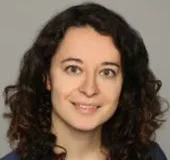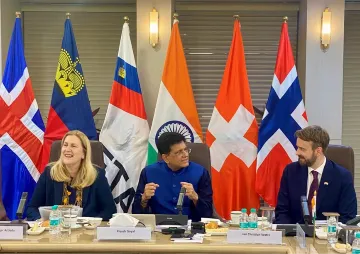
Much like in other countries, it took Israel — and Israelis — a while to adjust to the unprecedented situation caused by the Covid-19 pandemic. The main difficulty is to reach out to the insular communities that are disconnected from governmental policies. Israel had spotted the danger of the virus early and took the first necessary measures — isloating and quarantining those arriving from China — in February. A week later, Italy and many Southeast Asian countries were added to the list, eventually leading to a ban on entry from many European states.
Until 2 March, when the country voted for the third time in a year, it seemed that the situation was under complete control. Even on 9 March, when Israel celebrated the Purim holiday, all appeared ok. Although municipalities had cancelled carnival processions and masquerades, the government was afraid to introduce a complete ban on mass events. So, parties and traditional festivities went on in many communities. But soon after it became clear that celebrating Purim had caused a drastic rise in the number of infected people. On 19 March, Prime Minister Benjamin Netanyahu imposed a state of emergency on the entire country; only ten people would be allowed to come together, the necessary amount of men that is necessary to pray.
Soon, as the number of infected rose to the thousands, the police began to fine those violating the quarantine regulations, and Shin Bet, the internal security service, started accessing the mobile phones of those infected to track their contacts. But the synagogues and Yeshivas, the religious schools, continued to operate as usual. On 25 March, the government decided to tighten the regulations and banned people from gathering altogether.
Health Minister Yaakov Litzman, a representative of the ultra-orthodox community and member of the religious Yahadut ha-Torah party, objected to this measure and demanded an exception for religious schools and synagogues. It soon became apparent that leaders of the ultra-orthodox community had differing opinions on the quarantine regulations. After weeks of stalling, the leader of the Lithuanian ultra-orthodox group Chaim Kanievsky finally called on his followers to obey the decisions of the government. Other religious authorities urged believers to pray from home, relying on the Jewish principle of Piquah Nefesh, which focuses on saving lives before anything else.
Nevertheless, the number of violations grew steadily. Jerusalem´s ultra-religious neighbourhoods and cities such as Bnei Brak continued celebrating weddings, praying and studying together. But the ultra-orthodox society, which lives 365 days a year under its own laws, could not understand or simply underestimated the threat to their community. In the government’s measures restricting free movement and assembly, it saw an attempt to prevent believers from practising their customs and traditions.
The results were devastating
By the end of March, ultra-orthodox cities and quarters were leading in numbers of Covid-19 infections. Litzman has tested positive after he allegedly continued to pray in the synagogue.
The situation became even more complicated with Passover on 9 April, another important Jewish holiday and a central event of the Jewish calendar. The government had to place Bnei Brak under a total closure, with military units keeping close watch. To ensure Israelis didn’t ignore the isolation and visit family and friends on passover, the government imposed a general quarantine throughout the country, with thousands of police officers guarding the streets.
Israel’s ultra-orthodox community interprets laws and directions in their way. Their respective spiritual leaders are more influential than the prime minister, and they simply speak another language and consume other media. The state did not immediately realise that it needed to share information on the Covid-19 virus and precautionary measures in Hebrew as well as other languages, including Yiddish and Arabic. This misunderstanding of cultural codes has led to numerous virus hotspots.
Although the government has made headway within the ultra-orthodox community, with the advent of the Muslim holy month of Ramadan, it has another challenge on hand. The Israeli leadership should learn from its mistakes and develop a policy to prevent large gatherings, as is traditional while breaking the daily fast, during this month. Israel is still afloat, but given the heterogeneity of multifaceted Israeli society, the situation may change in a matter of days.
East Jerusalem continues to be a black hole amid the pandemic where minimal checks are made. Despite the “Stay Home” campaign, awareness of the dangers of the virus among the Arab community is rather low. But the Arab community appears willing to comply with the state’s regulations. Also, an impressive number of medical personnel in Israel belong to the Arab community. Israel is also providing the Palestinian Authority with humanitarian assistance since the virus doesn‘t recognise walls and fences.
In 2015, former President Reuven Rivlin made a famous speech about the tribes of Israeli society living next to but separate from each other. He said that Israeli communities are drifting apart and do not constitute a shared society anymore. But as the Covid-19 crisis rages on, the various communities can no longer afford to exist on their own and be disconnected from the central government and its efforts to combat the pandemic.
The views expressed above belong to the author(s). ORF research and analyses now available on Telegram! Click here to access our curated content — blogs, longforms and interviews.



 Much like in other countries, it took Israel — and Israelis — a while to adjust to the unprecedented situation caused by the Covid-19 pandemic. The main difficulty is to reach out to the insular communities that are disconnected from governmental policies. Israel had spotted the danger of the virus early and took the first necessary measures — isloating and quarantining those arriving from China — in February. A week later, Italy and many Southeast Asian countries were added to the list, eventually leading to a ban on entry from many European states.
Until 2 March, when the country voted for the third time in a year, it seemed that the situation was under complete control. Even on 9 March, when Israel celebrated the Purim holiday, all appeared ok. Although municipalities had cancelled carnival processions and masquerades, the government was afraid to introduce a complete ban on mass events. So, parties and traditional festivities went on in many communities. But soon after it became clear that celebrating Purim had caused a drastic rise in the number of infected people. On 19 March, Prime Minister Benjamin Netanyahu imposed a state of emergency on the entire country; only ten people would be allowed to come together, the necessary amount of men that is necessary to pray.
Soon, as the number of infected rose to the thousands, the police began to fine those violating the quarantine regulations, and Shin Bet, the internal security service, started accessing the mobile phones of those infected to track their contacts. But the synagogues and Yeshivas, the religious schools, continued to operate as usual. On 25 March, the government decided to tighten the regulations and banned people from gathering altogether.
Health Minister Yaakov Litzman, a representative of the ultra-orthodox community and member of the religious Yahadut ha-Torah party, objected to this measure and demanded an exception for religious schools and synagogues. It soon became apparent that leaders of the ultra-orthodox community had differing opinions on the quarantine regulations. After weeks of stalling, the leader of the Lithuanian ultra-orthodox group Chaim Kanievsky finally called on his followers to obey the decisions of the government. Other religious authorities urged believers to pray from home, relying on the Jewish principle of Piquah Nefesh, which focuses on saving lives before anything else.
Nevertheless, the number of violations grew steadily. Jerusalem´s ultra-religious neighbourhoods and cities such as Bnei Brak continued celebrating weddings, praying and studying together. But the ultra-orthodox society, which lives 365 days a year under its own laws, could not understand or simply underestimated the threat to their community. In the government’s measures restricting free movement and assembly, it saw an attempt to prevent believers from practising their customs and traditions.
Much like in other countries, it took Israel — and Israelis — a while to adjust to the unprecedented situation caused by the Covid-19 pandemic. The main difficulty is to reach out to the insular communities that are disconnected from governmental policies. Israel had spotted the danger of the virus early and took the first necessary measures — isloating and quarantining those arriving from China — in February. A week later, Italy and many Southeast Asian countries were added to the list, eventually leading to a ban on entry from many European states.
Until 2 March, when the country voted for the third time in a year, it seemed that the situation was under complete control. Even on 9 March, when Israel celebrated the Purim holiday, all appeared ok. Although municipalities had cancelled carnival processions and masquerades, the government was afraid to introduce a complete ban on mass events. So, parties and traditional festivities went on in many communities. But soon after it became clear that celebrating Purim had caused a drastic rise in the number of infected people. On 19 March, Prime Minister Benjamin Netanyahu imposed a state of emergency on the entire country; only ten people would be allowed to come together, the necessary amount of men that is necessary to pray.
Soon, as the number of infected rose to the thousands, the police began to fine those violating the quarantine regulations, and Shin Bet, the internal security service, started accessing the mobile phones of those infected to track their contacts. But the synagogues and Yeshivas, the religious schools, continued to operate as usual. On 25 March, the government decided to tighten the regulations and banned people from gathering altogether.
Health Minister Yaakov Litzman, a representative of the ultra-orthodox community and member of the religious Yahadut ha-Torah party, objected to this measure and demanded an exception for religious schools and synagogues. It soon became apparent that leaders of the ultra-orthodox community had differing opinions on the quarantine regulations. After weeks of stalling, the leader of the Lithuanian ultra-orthodox group Chaim Kanievsky finally called on his followers to obey the decisions of the government. Other religious authorities urged believers to pray from home, relying on the Jewish principle of Piquah Nefesh, which focuses on saving lives before anything else.
Nevertheless, the number of violations grew steadily. Jerusalem´s ultra-religious neighbourhoods and cities such as Bnei Brak continued celebrating weddings, praying and studying together. But the ultra-orthodox society, which lives 365 days a year under its own laws, could not understand or simply underestimated the threat to their community. In the government’s measures restricting free movement and assembly, it saw an attempt to prevent believers from practising their customs and traditions.
 PREV
PREV


